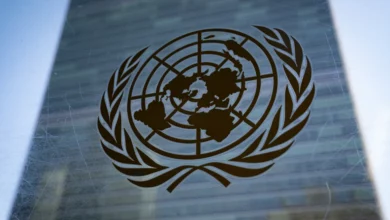The conference held recently in New York under the title “The Future of Democracy in Egypt” consisted of four sessions that examined the dimensions of the current crisis in Egypt, which has led to the state of political mobilization Egypt is today witnessing.
The four sessions looked into the legal and constitutional, economic and social, political, and cultural and ethical dimensions of the crisis. With all participants having an academic background, the discussions were objective and scientific.
Comments and questions from the audience fell into three categories. The first category of questions sought clarification on certain matters that seemed vague or controversial in nature. The second implied a general consensus on the need for change, even though the motives for supporting change differed.
The third focused on the mechanisms needed to bring about change in the time available, which many saw as too short. With regards to this last point, two dimensions were evoked: the first concerned whether there were structures in Egypt capable of building on the current state of mobilization, and the second concerned the role expatriate Egyptians could play to help introduce change in Egypt.
It seemed quite clear that the questions in the minds of Egyptians–be they in Egypt or outside it– are largely the same. This reminded me of a statement by Pope Shenouda in which he said that Egypt was a homeland that lives in us rather than one in which we live.
In response to the questions, I tried to explain the nature of the National Association for Change–its strengths and weaknesses and the challenges it faces, whether as a result of its own internal structure or the siege imposed on its activities and on political activism in general.
Regarding the role of expatriate Egyptians, I suggested they first work on achieving solidarity among themselves and then push for participation in upcoming elections.
Translated from the Arabic Edition.




